When We Want Something Else
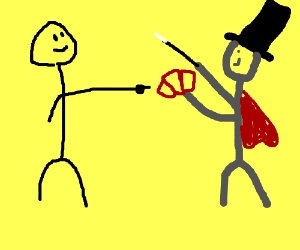 Today’s quote come from a dharma buddy (thanks, Lori!), who is reading — and highly recommends — Stepping Out of Self Deception, by Rodney Smith.
Today’s quote come from a dharma buddy (thanks, Lori!), who is reading — and highly recommends — Stepping Out of Self Deception, by Rodney Smith.
“Suffering is the desire for more choices than reality offers, but reality is without options. Our mind creates mental alternative where there are none in reality and we do so by bargaining with reality through our desires and fears.”
What We Talk About When We Talk About Mindfulness
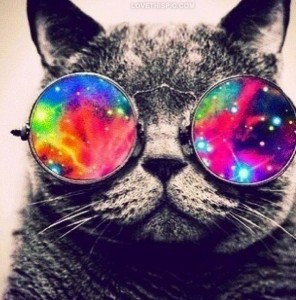 This month’s Mindfulness magazine features an interview with ABC news anchor Dan Harris. He talks about what he calls “the best story of his career,” in which he goes from having an on-air panic attack, to drug abuse, to attending a 10-day meditation retreat at Spirit Rock…to eventually writing this new book — 10% Happier: How I Tamed the Voice in My Head, Reduced Stress Without Losing My Edge, and Found Self-Help That Actually Works–A True Story.
This month’s Mindfulness magazine features an interview with ABC news anchor Dan Harris. He talks about what he calls “the best story of his career,” in which he goes from having an on-air panic attack, to drug abuse, to attending a 10-day meditation retreat at Spirit Rock…to eventually writing this new book — 10% Happier: How I Tamed the Voice in My Head, Reduced Stress Without Losing My Edge, and Found Self-Help That Actually Works–A True Story.
In the interview, he has a lot of great things to say about mindfulness (e.g. “I love this practice. “It’s absolutely changed my life.”). But what’s especially refreshing is his take on how we (some of us) have come to talk about mindfulness.
He says, “For mindfulness to reach a broader audience, we need to have ambassadors who talk about it in a new way, who don’t use terms like ‘sacred space’ and ‘the goddess mother’ or collect crystals and listen to Cat Stevens a lot.
“We need people who can talk about it in a normal way that everyday people can relate to. We also need to lose phrases like ‘clearing the mind.’ Mindfulness doesn’t have anything to do with magically removing all the clamor. It’s about having a different relationship with the clamor.”
Right on, brother.
Meditation On Walking
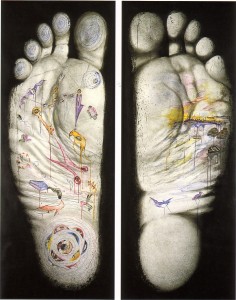 Today’s post is from Verses from the Center, written by Nagarjuna (2nd century C.E.), translated by Stephen Batchelor. (The pronoun change is mine.)
Today’s post is from Verses from the Center, written by Nagarjuna (2nd century C.E.), translated by Stephen Batchelor. (The pronoun change is mine.)
Walking
I do not walk between
The step already taken
And the one I’m yet to take,
Which both are motionless.
Is walking not the motion
Between one step and the next?
What moves between them?
Could I not move as I walk?
If I move when I walk,
There would be two motions:
One moving me and one my feet–
Two of us stroll by.
There is no walking without walkers,
And no walkers without walking.
Can I say that walkers walk?
Couldn’t I say they don’t?
Walking does not start
In steps taken or to come
Or in the act itself.
When does it begin?
Before I raise a foot,
Is there motion,
A step taken or to come
Whence walking could begin?
What has gone?
What moves?
What is to come?
Can I speak of walkers,
When neither walking,
Steps taken nor to come ever end?
Were walking and walker one,
I would be unable to tell them apart;
Were they different,
There would be walkers who do not walk.
These moving feet reveal a walker
But did not start her on her way.
There was no walker prior to departure.
Who was going where?
It’s Time.
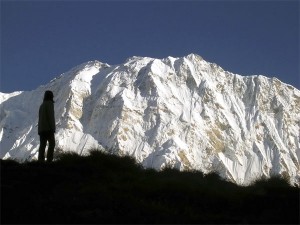 I’ve finally started reading The Snow Leopard, by Peter Matthiessen, which I’ve been meaning to read forever, but which I kept putting off — maybe because it seemed too masculine to me, all that trekking through rain and snow etc., even though it was recommended to me over and over as a gorgeously written mediation on the meaning of life, more of an inner journey really, a deeply thoughtful exploration of love and loss, etc. etc.
I’ve finally started reading The Snow Leopard, by Peter Matthiessen, which I’ve been meaning to read forever, but which I kept putting off — maybe because it seemed too masculine to me, all that trekking through rain and snow etc., even though it was recommended to me over and over as a gorgeously written mediation on the meaning of life, more of an inner journey really, a deeply thoughtful exploration of love and loss, etc. etc.
I’d owned a paperback copy for years, picking it up every so often, but always putting it back down. I’d packed it and moved it with me from house to house several times, but finally gave it away in one of my periodic house cleaning purges. Then when the author died this year, and I read another great review of this, his most famous book, I almost went out and bought a brand new copy, but somehow I just sort of forgot about it.
Now, I don’t know why, I’ve decided it’s time.
Here’s a sample:
A luminous mountain morning. Mist and fire smoke, sun shafts and dark ravines: a peak of Annapurna poises on soft clouds. In fresh light, to the peeping of baby chickens, we take breakfast in the village tea house, and are under way well before seven.
A child dragging bent useless legs is crawling up the hill outside the village. Nose to the stones, goat dung, and muddy trickles, she pulls herself along like a broken cricket. We falter, ashamed of our strong step, and noticing this, she gazes up, clear-eyed, without resentment–it seems much worse that she is pretty. In Bengal, GS says stiffly, beggars will break their children’s knees to achieve this pitiable effect for business purposes: this is his way of expressing his distress.
But the child that lies here at our boots in not a beggar; she is merely a child, staring in curiosity at tall, white strangers. I look to give her something–a new life?–yet am afraid to tamper with such dignity. And so I smile as best I can, and say “Names-te!” “Good morning!” How absurd! And her voice follows as we go away, a small clear smiling voice–“Namas-te!”–a Sanskrit word for greeting and parting that means, “I salute you.”
***
Yep.
It’s definitely time.
Brown is the New Red
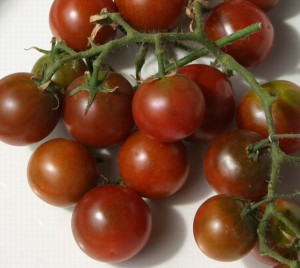 One of the July menus in the Year of Recipes from the Garrison Institute Kitchen calls for brown cherry tomatoes, which at first I thought was a typo and what they really meant was: browned cherry tomatoes. But I was wrong. It seems there’s a “new” heirloom variety of tomatoes, which they grow at the Garrison Institute gardens.
One of the July menus in the Year of Recipes from the Garrison Institute Kitchen calls for brown cherry tomatoes, which at first I thought was a typo and what they really meant was: browned cherry tomatoes. But I was wrong. It seems there’s a “new” heirloom variety of tomatoes, which they grow at the Garrison Institute gardens.
So of course I thought I would never encounter them. But I was wrong again. Whole Foods had a whole table of them! (These were grown in a greenhouse and shipped from Canada, so they probably don’t taste like the ones picked from the gardens at the Garrison Institute, but I figured I’d give them a try anyway.) I tasted one right out of the package with a little sea salt and it was pretty good. Quite tart. Meaty. With a firm skin.
Here’s the recipe, which I plan to make tonight:
Pasta with Brown Cherry Tomatoes, Eggplant, Salt-Cured Capers, Mozzarella, Mint, Basil, and Garlic
1/2 lb. high-quality penne pasta, cooked according to package
1 cup brown cherry tomatoes (or your favorite variety)
1/2 lb. fresh mozzarella, cut into 1-inch cubes (room temperature)
1/2 cup olive oil, divided
1/4 cup coarsely chopped mint
1/4 coarsely chopped basil
1 1/2 tsp. chopped garlic
1 1/2 tsp. salt-cured capers, soaked for a few minutes in water (I’m going to have to use water-packed capers. Outside of Italy, or a real Italian grocery store…like on the Hill in St. Louis…I’ve never been able to find capers packed in salt.)
Salt & black pepper
1 1/2 cups eggplant, cut into 1-inch cubes, skin on or off
1.Preheat oven to 400 F. Cut the cherry tomatoes in half, or quarter them, depending on the size, and place in a serving bowl.
2. Add the fresh mozzarella to the tomatoes in the bowl along with 1/4 cup olive oil, mint, basil, garlic, drained capers, and a pinch of salt and pepper. Let the mixture stand to allow the flavors to blend while roasting the eggplant.
3. In another mixing bowl, toss the eggplant with the remaining 1/4 cup olive oil and pinch of salt. Roast on a baking sheet until golden brown and completely tender, about 10 to 12 minutes. (Underdone eggplant is spongy and bland, yet bitter, while well-cooked eggplant is silky in texture with a more developed, sweeter taste.) Keep in a warm spot on the stovetop.
4. Add the just-cooked, al dente pasta and hot eggplant to the bowl with the tomato mixture. Toss together. Taste and adjust the salt and pepper. Serve warm.
The original recipe serves 4 to 6. I’m by myself, so I’ve halved the ingredients. I figure this should make enough for 2 dinners.
The Usefulness of What Isn’t
 Today’s post from Ursala Le Guin’s wonderful new translation of the Tao Te Ching.
Today’s post from Ursala Le Guin’s wonderful new translation of the Tao Te Ching.
11. The Uses of Not
Thirty spokes
meet in the hub.
Where the wheel isn’t
is where it’s useful.
Hollowed out,
clay makes a pot.
Where the pot’s not
is where it’s useful.
Cut doors and windows
to make a room.
Where the room isn’t,
there’s room for you.
So the profit in what is
is in the use of what isn’t.
Breathe Air. Drink Water.
 I’m almost to the end of Ursala Le Guin’s wonderful novel/imaginary-anthropology-report/love-letter-from-the-future, titled Always Coming Home, and I’m reluctant to move on.
I’m almost to the end of Ursala Le Guin’s wonderful novel/imaginary-anthropology-report/love-letter-from-the-future, titled Always Coming Home, and I’m reluctant to move on.
So I’ll post this little snippet, a poem called The Writer to the Morning in Up The Hill House in Sinshan, by Little Bear Woman (one of the residents of Le Guin’s inspiring future/past world.)
Those who want fighting, let them smoke tobacco.
Those who want excitement, let them drink brandy.
Those who want withdrawal, let them smoke cannabis.
Those who want good talking, let them drink wine.
I don’t want any of those things at this moment.
Early in the morning I breathe air and drink water,
because what I want is clarity and silence
and one thin line of words on the white paper
drawn around my thoughts in clarity and silence.
Seeing Is Remembering
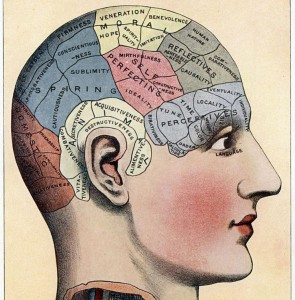 This from Dawn Light: Dancing with Cranes and Other Ways to Start the Day, by Diane Ackerman, another serendipitous find from the stacks of the Chapel Hill Public Library:
This from Dawn Light: Dancing with Cranes and Other Ways to Start the Day, by Diane Ackerman, another serendipitous find from the stacks of the Chapel Hill Public Library:
“Brain-mapping shows that two-thirds of vision is memory, not what’s happening in the occipital lobes! When I see a magnolia branch, my brain provides an image of the full tree, when I hear a rat-a-tat-tat, my brain riffles through its images for a woodpecker viewed one morning last fall.
“Memories are always true to the moment of recall. Each time we haul them up from the brain’s sloshy attic, we primp and prune them in terms of the here and now, and store them as slightly different mementos.
“As we grow and change, each memory adapts so that we feel real and fuel a continuous sense of self. And so every generation experiences a unique version of history, and everyone revises memories over time.”
What’s Your Name?
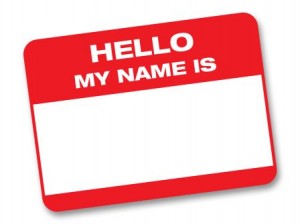 I’m fascinated by the fictional society Ursala Le Guin has created in Always Coming Home. Especially the names of the characters, and the way they get them.
I’m fascinated by the fictional society Ursala Le Guin has created in Always Coming Home. Especially the names of the characters, and the way they get them.
The characters in the book have a First name, a Middle name, and a Last name. But it’s not like our names, which we get all at once when we’re born. They get a name when they’re born, which is their First name. And then they get a Middle name later, when they’re in the middle of life…when they become an adult or when they’ve established themselves in some kind of identity. And then in the last part of their life, they get a Last name.
Their families give them their First name. This is not a city culture, so their names are usually taken from nature. The narrator’s Fist name is North Owl. Thorn is another example. Or Agate.
Their Middle name comes from something about their habits or character, or an important event in their life. It can be given by a family member, or by an important teacher, or it can be a name that they choose for themselves. The narrator’s Middle name is Woman Born Above Others. Ewe Dance in another example. Or Willow. Or Ire.
I haven’t gotten to the end of the book, so I’m not exactly sure, but the Last name seems to be the most personal. It’s usually a name one declares for oneself, but it can also be given. It can come from a vision. Or a vocation. Or from a great change of life. The narrator’s Last name is Stone Telling. Old Cave Woman is another example. Or Mouse Dance. Or Corruption.
I’m past the middle part of my life, so if I were to get a new name, it would be my Last. I wonder what it would be.
Something to do with Inspiration and Imagination and Enjoyment, I hope. Solitude would probably be a part of it. Maybe something like Reads A Lot.
🙂
Random Treasure
 I was at the magnificent Chapel Hill Public Library over the weekend, looking for a poem I had heard quoted on a recent dharma talk, when I was drawn to a little red spine, on a completely unrelated shelf. It read: Things That Are. I stopped and opened it up.
I was at the magnificent Chapel Hill Public Library over the weekend, looking for a poem I had heard quoted on a recent dharma talk, when I was drawn to a little red spine, on a completely unrelated shelf. It read: Things That Are. I stopped and opened it up.
It was a little gem! A collection of essays by Amy Leach, her first book, and it starts like this:
“Usually all we have to do when we go a-conquering is build a boat, find a benefactress, recruit a ribald crew, and wear glinting helmets.”
I love that! It continues:
“….Even with our fine record of conquest, there remain a few things we do not have atlases for, like tomorrow and the rain and the gods and donkeys. This is the sweet stuff of gambling–the chancier the better.
“Betting on wild donkeys at the Kentucky Derby is even more fun than betting on thoroughbreds: with wild donkeys from the salt flats there are no tired conventions like ‘early moderate tempo’ or ‘tactical speed’ or even ‘forward progress.’ A donkey derby is nothing but upsets, from start to finish. And betting on the gods is better still; it feels like placing bets on Thelonious Monk’s ten fingers–which finger will play what key next!
“Tonight, on this latest antecedent of tomorrow, it is starry out and I am not in a conquering mood. Come and miss the boat with me. Come and play some guessing games. We’ll read aloud the illegible electric green script of the northern lights; we’ll speculate about which star in the next ten thousand years is going to go supernova. Then we’ll listen to a recording of ‘Epistropy.’ I’ll wager on his left thumb, you take whichever finger you want, and with the mad currency we collect from each other I’ll buy you rain, you buy me snow, and we’ll go in together for sunshine for the grass and the clover and the delicious prickly thistles.”
***
How happy I am to have set out toward my destination and to have arrived at yet another.
